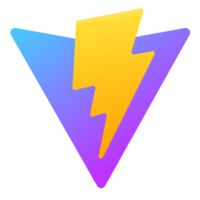Need advice about which tool to choose?Ask the StackShare community!
GWT vs Marko: What are the differences?
GWT: An open-source set of tools to create and maintain complex JavaScript front-end applications *. It is a development toolkit for building and optimizing complex browser-based applications. Its goal is to enable productive development of high-performance web applications without the developer having to be an expert in browser quirks, XMLHttpRequest, and JavaScript; *Marko:** An isomorphic UI framework similar to Vue. Marko is a really fast and lightweight HTML-based templating engine that compiles templates to readable Node.js-compatible JavaScript modules, and it works on the server and in the browser. It supports streaming, async rendering and custom tags.
GWT belongs to "Javascript MVC Frameworks" category of the tech stack, while Marko can be primarily classified under "Javascript UI Libraries".
Marko is an open source tool with 9.12K GitHub stars and 569 GitHub forks. Here's a link to Marko's open source repository on GitHub.
LTE Consulting, Whatfix, and Unmetric are some of the popular companies that use GWT, whereas Marko is used by ebay, MineWhat Inc, and inGaia. GWT has a broader approval, being mentioned in 7 company stacks & 5 developers stacks; compared to Marko, which is listed in 3 company stacks and 5 developer stacks.
Pros of GWT
Pros of Marko
- Simplicity6
- Better than React, Vue, etc5
- Speed5
- No JSX5
- Components4
- HTML markup4
- Performance4
- Data Flow2
- Documentation1
- Low CPU cost1
- Isomorphic1
- Virtual DOM1
Sign up to add or upvote prosMake informed product decisions
Cons of GWT
Cons of Marko
- Extensibility1
- Unit test1
- Mobile native1




























